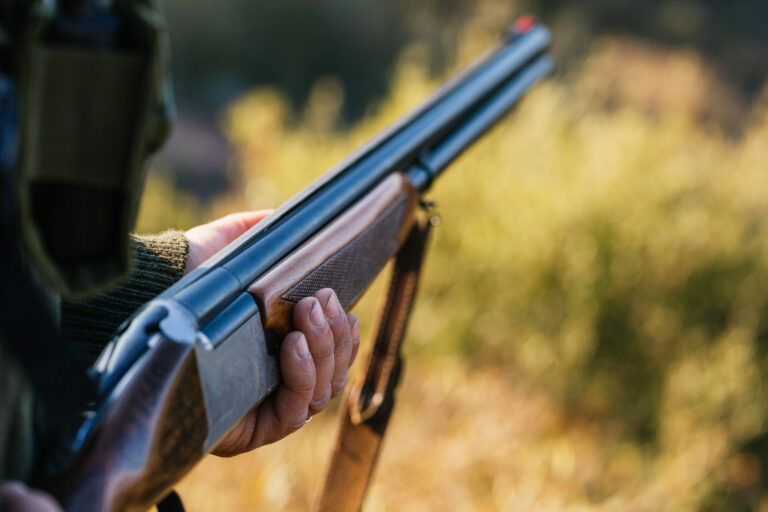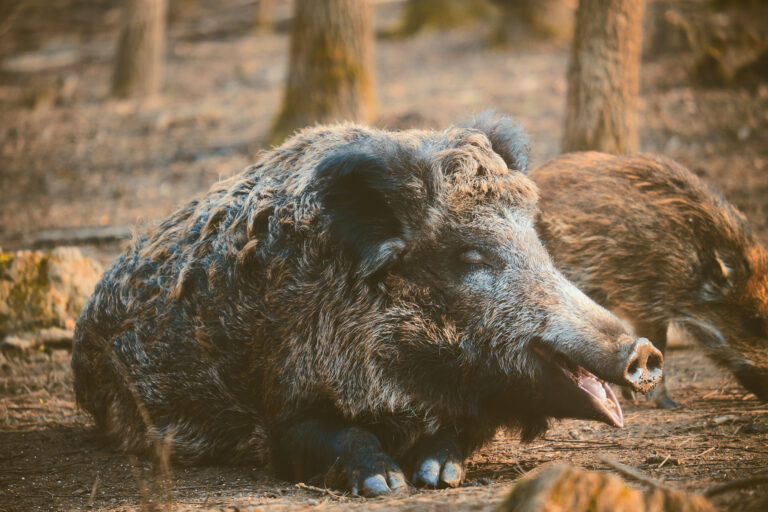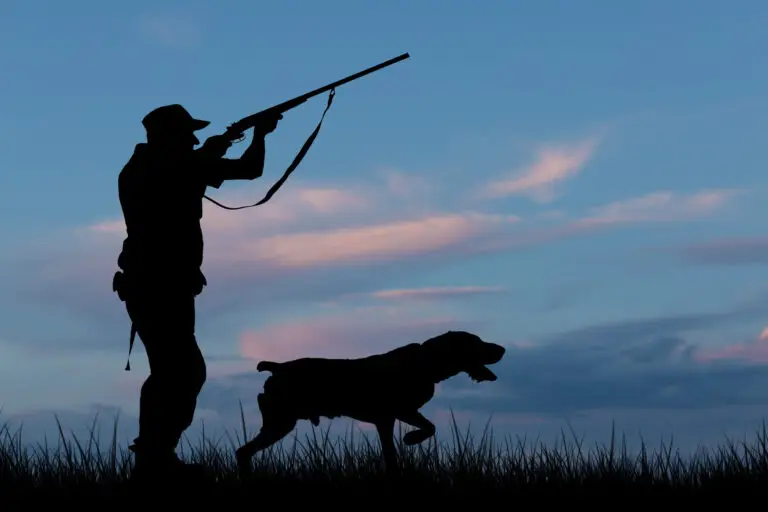Choosing the right firearm is essential for a successful hunting experience. Before buying a firearm, there
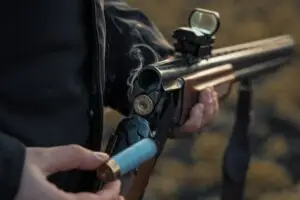
are several things to consider to ensure that you select the right one for your needs.
Table of Contents
In our world and country, there is an extensive selection of weapons available for use. However, this guide will not delve into the specifics of individual firearms or offer recommendations on what to purchase. Instead, it will provide guidance on what to consider and the questions to ask yourself when selecting a firearm, so that you can adequately prepare for your next hunting expedition.
Unless someone wants to sponsor us.
You have my number Weatherby.
Anyways, let’s get into it.
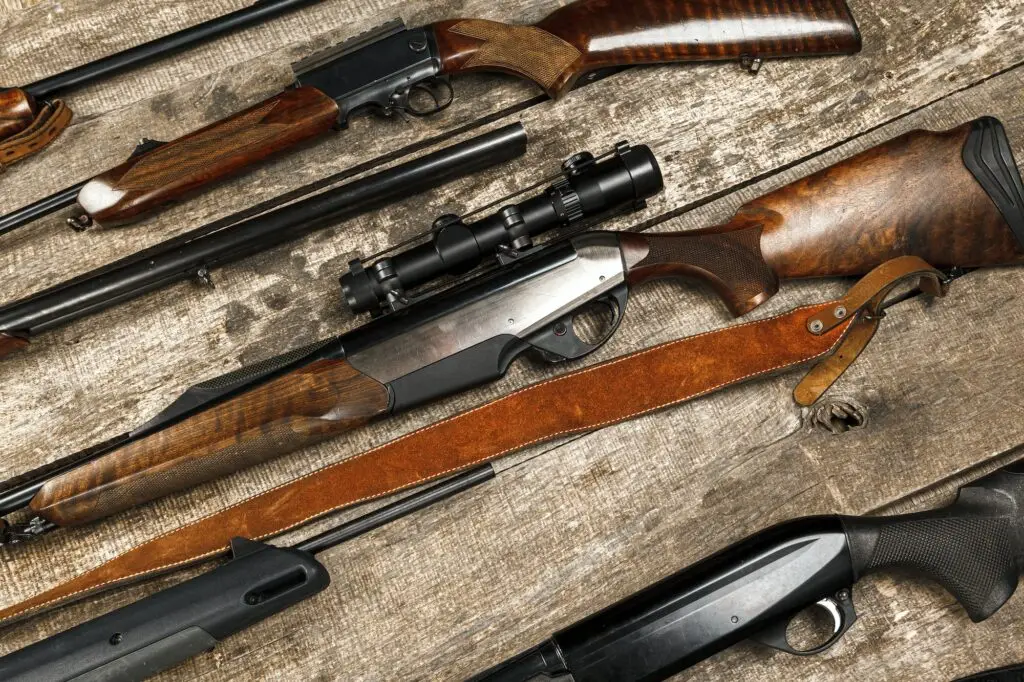
1. What are the Hunting Regulations in My State?
Hunting is an activity that requires not only a passion for the outdoors but also a deep understanding of the regulations that govern it, and this is especially important when choosing a firearm. One of the most essential aspects to consider before choosing a firearm for hunting is understanding the hunting regulations in your state.

Understanding hunting regulations will not only help you avoid legal troubles but also ensure that you have a successful, and most importantly, ethical hunting experience. Hunting laws are in place for a reason: to protect wildlife and ensure the safety of you, me, and all our fellow hunters. As a responsible and ethical hunter, always research the specific requirements for firearms used for hunting in your state before making a purchase.
One crucial aspect of these regulations is caliber restrictions. For example, in Colorado, hunters are required to use rifles with a minimum caliber of .24 for big game hunting – while other states may be more lax.
Failure to comply with these regulations may result in severe consequences, including fines, license suspension, or even jail time. If in doubt, check with your local wildlife agency to ensure that the firearm you choose is legal for hunting in your state.
2. What am I hunting?
When choosing a firearm for hunting, always take into account the game species you plan to hunt. Different species have different requirements, and you need to select a firearm that can handle the size and strength of your game.
For instance, if you plan to hunt small game, such as rabbits or squirrels, you’ll require a firearm with less power than if you plan to hunt larger game like deer, elk or moose. To ensure a clean and painless kill that won’t panic an animal while struck, also make sure there is enough power in your weapon!
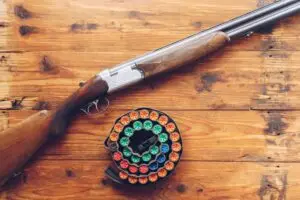
If you are planning to hunt deer, you might want to consider a rifle chambered in a powerful caliber like .30-06 or .308 Winchester, while for smaller game, a .22 LR rifle is probably more than enough.
Yet again it’s important to keep your state’s hunting regulations in mind. For instance, in areas inhabited by California Condors, the state of California prohibits the use of lead ammunition during hunting due to the risk of lead poisoning.
Likewise, waterfowl hunting regulations vary from state to state and may include specific restrictions, such as limitations on the maximum gauge or caliber of firearms allowed. Check out our which pellets are allowed for waterfowl hunting in our article here!
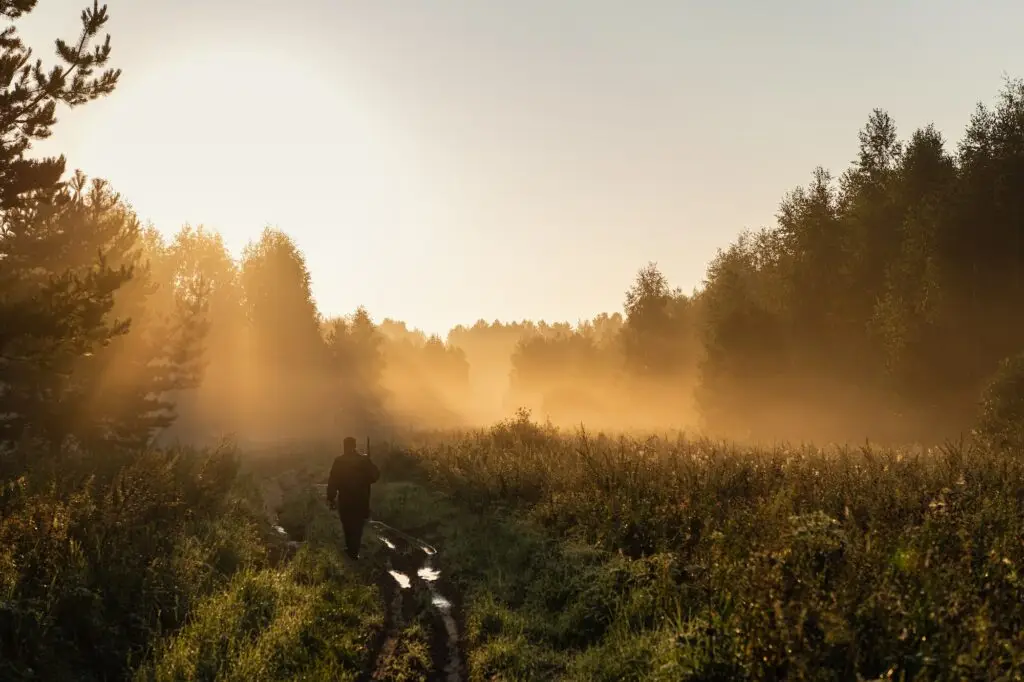
3. How far away will I be from my prey?
When preparing to purchase a firearm for your next hunting adventure, one of the most significant considerations is the range at which you plan to hunt. Some hunters, like my family, even own extensive collections of rifles to choose from based on which environment they plan to hunt in.
Obviously you don’t need to go to such extremes, but it is still important to consider the environment and range you expect to face before selecting your weapon.
For instance, if you plan to hunt in an open field with considerable distances between you and your prey, a firearm with a longer range, like a rifle, is a better choice. In contrast, if you’re hunting in dense forests or close-range environments, a shotgun with a shorter range is more appropriate.
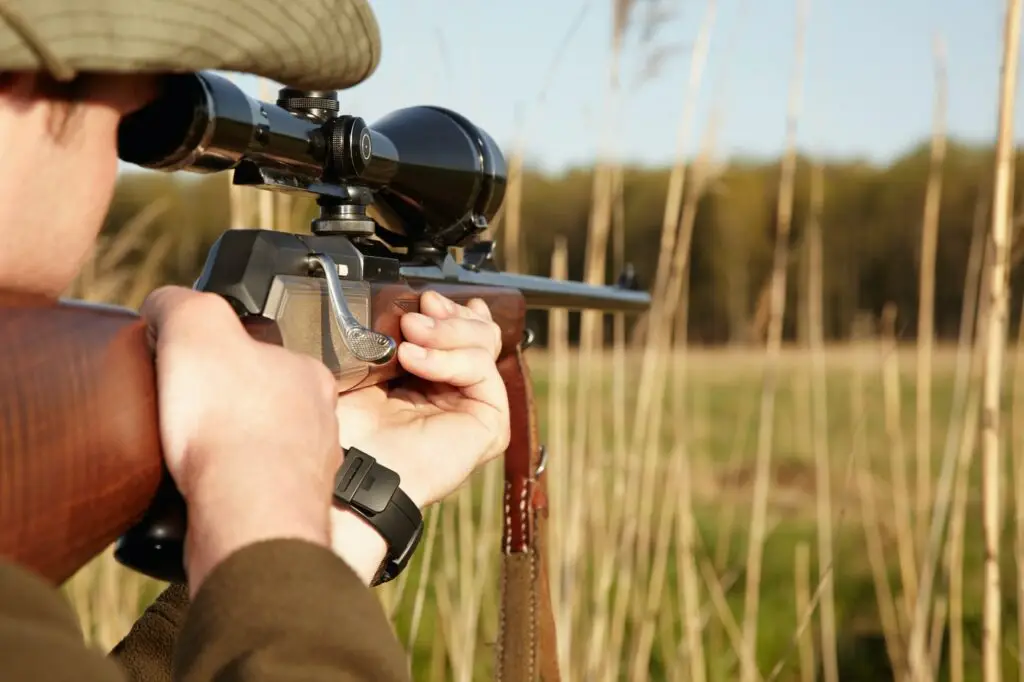
When assessing the range, remember to take into account the firearm’s caliber, as it can affect its accuracy and effective range. Additionally, consider your personal comfort level and skill when shooting at different ranges.
A seasoned marksman may be comfortable shooting at greater distances, while a novice hunter may feel more confident at closer ranges. Always prioritize the well-being of your prey and ensure you make ethical shots.
If you’re not comfortable shooting at a long range, don’t go for a more powerful rifle and hope for the best. Instead, choose a firearm designed for shorter distances and work on getting closer to your prey.
By selecting a firearm that is appropriate for your hunting environment and skill level and taking into account the range, you are much more likely to have a successful and enjoyable hunt. Also, make sure that you pattern whichever firearm you go with – which you can read more about on our shotgun patterning article here.
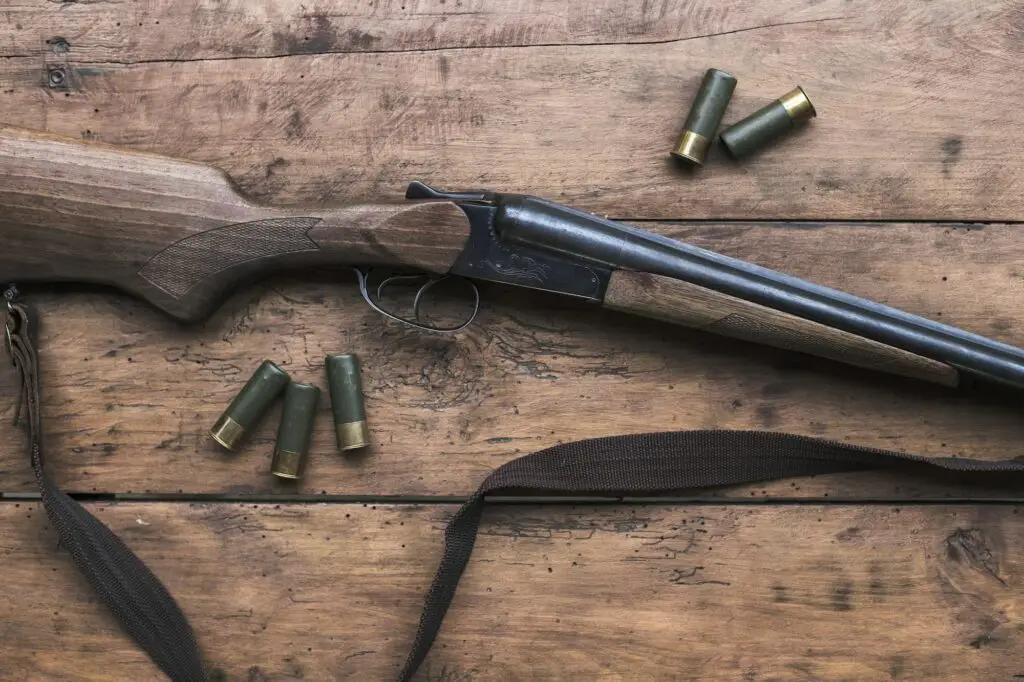
4. How accurate am I, and how accurate it this firearm?
Accuracy is another incredibly important factor to consider when choosing a firearm for hunting. Always do your best to ensure that you select a firearm that is as accurate and precise as possible. The accuracy of a firearm depends on several factors such as the weight, balance, and length of the barrel.
A heavy firearm may be more stable and reduce recoil, but it can be cumbersome to carry around. On the other hand, a lightweight firearm may be easier to handle, but it may have more recoil, which can affect your accuracy.
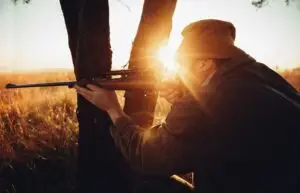
Other things to consider regarding accuracy are tights and the trigger pull. A good sight can significantly improve your accuracy and make it easier to aim at your target, and a firearm with a smooth and consistent trigger pull makes it much easier to stay have a clean and straight shot.
Honestly, the most important thing is to choose a firearm that is comfortable to shoot. A comfortable firearm will help you maintain accuracy, reduce fatigue, and ensure that you enjoy your hunting experience a lot more. This is why it can be dangerous to just look up a youtube guide on “top 10 best hunting rifles” and just take their word for it.
Different strokes for different folks as my uncle used to say – so find what works for you!
5. What is the recoil on this firearm?
The recoil of a firearm is the backward movement of the firearm after it has been fired, which can be one of the most difficult things to adjust to, especially for newer hunters. A firearm with a high recoil can be uncomfortable to shoot and can definitely affect your accuracy.
To help reduce the recoil, consider a firearm with a heavier weight or one that has a recoil-reducing system. Additionally, you should consider the type of ammunition you plan to use, as some types of ammunition have a higher recoil than others.
For example, a .30-06 rifle loaded with a 180-grain bullet will have more recoil than the same rifle loaded with a 150-grain bullet. Always test different types of ammunition to find the best fit for you and your firearm, and never go out on a hunt with something you’ve never had a chance to feel out beforehand!

6. What is my budget?
Finally, the last point is of course what your financial situation is looking like. Quality firearms that are built for hunting can be expensive, and it’s essential to strike a balance between quality and affordability. As a hunter, you should determine how much you are willing to spend on a firearm that meets your needs.

Always do your research and compare prices of different brands and models to determine what fits your budget, just keep in mind that quality and durability should be your top priority. If your budget is limited, consider purchasing a used firearm or a lower-priced model. However, my uncle always said “you can’t afford to buy cheap” – and for hunting, this is especially important.
If you have to invest in anything when it comes to hunting, make sure it’s your firearm. A quality firearm is a very worthwhile investment that can last for many hunting seasons. Also, if you decide to go for a used firearm – ensure you inspect it thoroughly and have a professional gunsmith check it out before making a purchase. Safety first, always.
Firearm Recommendations
Like I said at the beginning of the guide, this article isn’t about recommending you any specific rifle – but rather help you get towards one specific kind of rifle depending on what your needs are. Survival Gear over on YouTube do have a lot of recommendations, and we found this one to be specifically helpful!
Choosing the Right Firearm Is Important!
Ultimately, choosing the right firearm for you comes down to a set of factors that revolve around preference and experience. A new hunter needs to consider weapons that are designed for a shorter range, and has less recoil but with enough power to ensure as clean of a kill as possible.
When we decide to go for a new firearm, our research process usually follows the steps in this guide in order.
First, we look up the hunting regulations in whichever state we decide to hunt in using the information on the official state government website (we’re Washingtonians, so we’d go refer to the Washington Administrative Code). This immediately eliminates a bunch of options from our pool of choices and speeds up the process.
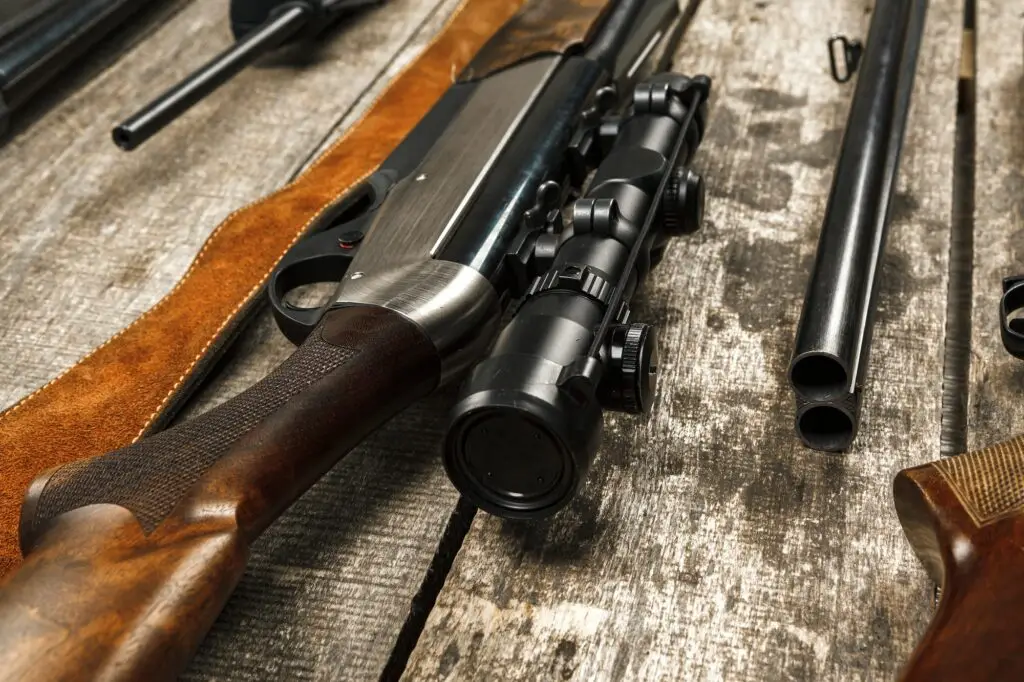
Then we look at the gun itself: power, accuracy, range, recoil. How heavy is it? How does it feel to hold? Is this firearm best for stand or still hunting, or both? What am I hunting? What does the terrain look like there?
Keep asking these questions to yourself, and then finally consider your budget and see how far you can stretch it in either category.
By taking the time to carefully assess these factors, you can select a firearm that is appropriate for your needs and will help you make the shot count.
Remember, a quality firearm is a worthwhile investment, and with proper care and maintenance, a solid firearm should last you many, many hunting seasons!
We hope you found this guide useful. Looking for other hunting tips? Check out our other guides here!
Happy Hunting!


